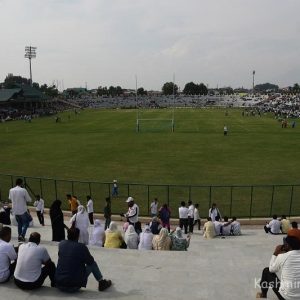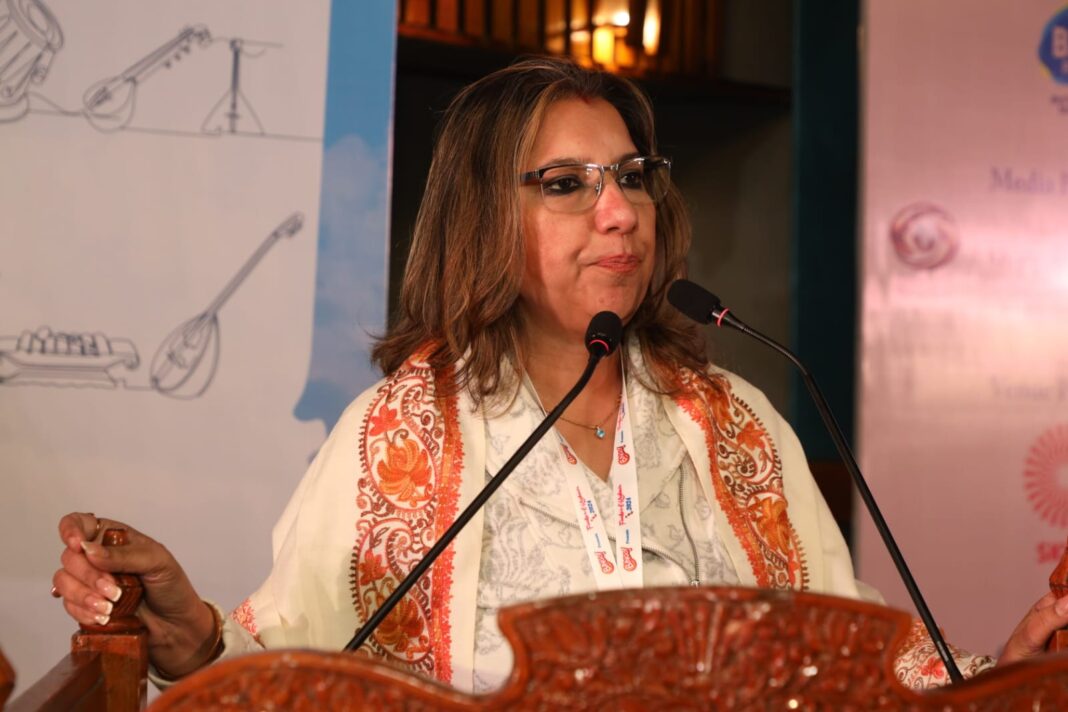The resolution passed by the ruling National Conference in the Jammu and Kashmir assembly today falls far short of expectations and is not in sync with the mandate the party received in the election just last month. The only reason the NC won a majority on its own, for the first time since 1996, was that the people are overwhelmingly opposed to the unilateral decisions imposed by New Delhi on August 5, 2019 which have had catastrophic ramifications, politically and socially. Yet, at the first time of asking, the party seems to have given short shrift to that decisive public mandate.
Any demand made through a resolution passed by the assembly is not legally binding for New Delhi, sure, but it carries substantial meaning. It asserts, for one, that this body, having been popularly elected, is, in the current constitutional scheme, the sole representative of the people.
The key argument made by New Delhi in the Supreme Court in support of its decision to scrap Articles 370 and 35A was that the then governor represented the will of the people of J&K in the absence of an elected assembly, which stood dissolved after the BJP pulled support from Mehbooba Mufti’s government, that his consent to the monumental constitutional and political changes amounted to the consent of the people.
It was, therefore, critical for the first elected assembly since August 2019 to make it abundantly clear that this representative body of J&K’s people did not agree with the then governor’s consent given on its behalf. And it was straightforward to do so given that all its members other than those from the BJP stood opposed to the changes made more than five years ago. Merely showing “concern” wasn’t enough.
No one is oblivious to the current political situation. The unimaginable level of pressure and coercion deployed in J&K in the last five years is not lost on anyone, nor is the reality that the power equation between New Delhi and Srinagar is asymmetrical. The NC’s worry that a direct confrontation with New Delhi at this juncture could delay or even halt the restoration of full statehood is also given a sympathetic hearing by the people.
None of this, however, can explain why the content of the resolution was not unambiguous. It was, after all, about the core issue that had driven the people to give the NC such an unambiguous mandate. Left feeling utterly disempowered by August 5, 2019 and they expected to undo or, at the very least, oppose the unilateral move.
Taking a strong position was also in the party’s own interest. The reason its new government does not have any administrative or legal powers to write home about and is at the mercy of the lieutenant governor sent by New Delhi is August 5, 2019.
Taking all this into account, the resolution, instead of just “expressing concern”, could at least have said the assembly “disagrees” with the withdrawal of Article 370.
The resolution also seeks a dialogue between New Delhi and the elected representatives of J&K. This is also not in line with the people’s mandate for the ruling party. The resolution must have demanded, in no uncertain terms, the restoration of the special status. To ease the pressure, it could subsequently have sought a dialogue about the contours of the restoration.
Merely demanding a dialogue about the restoration of a legitimate right that was unilaterally snatched – that too after the whole place was shut down and the people caged – poses another problem. What if New Delhi doesn’t respond to such a request?
There’s precedent here. After the NC passed a resolution in 1999, more serious and comprehensive than this one, seeking the restoration of the pre-1953 special status of J&K, the then BJP government casually threw it into the bin.
The 1999 assembly, unlike this one, was empowered and powerful, and that resolution for autonomy was passed by a two-third majority. Yet, the central government rejected the resolution even before it set up a panel under the then minister Arun Jaitley to look into it.
The National Conference was in alliance with the BJP at the time and part of the Atal Bihari Vajpayee government. But the party didn’t even leave the Vajpayee government to protest the summary rejection of its resolution, a political decision that haunted it through three subsequent assembly elections. The NC would not win a majority on its own for 28 years.
There is a view, shared privately by several NC members, that if the party were to fight singularly for the restoration of the special status taken away in 2019, it would scuttle any chance of a return to full statehood. The NC, they argue, cannot afford a hostile New Delhi, particularly when it can reap electoral dividends by furthering choking J&K, its people and its government. This is undoubtedly a rational understanding of the current political atmosphere. But it can only make sense if the central government has diluted its stance on J&K and given the NC assurances about the restoration of full statehood.
A substantial change in New Delhi’s policy on Kashmir is unlikely given that it worked singularly for 10 years on abrogating J&K’s special status and reorganising it as a union territory. The Sangh Parivar’s fight to end J&K’s autonomy goes even further, as far back as the birth of the Indian republic. For the BJP, the political vanguard of the Sangh, the abrogation of Articles 370 and 35A has not only been an ideological preoccupation but also a tool of electoral success almost everywhere outside Kashmir valley and the hill districts of Jammu.
Why would the BJP want to alter its position now and allow the ruling NC a political breather?
Moreover, when has unilateral rapprochement worked before for J&K in its dealings with New Delhi? The NC simply needs to scan its own history to see that each time it has taken unilateral steps towards rapprochement with New Delhi, it has suffered. The chapter that concluded on August 9, 2019 began in 1953.
About a decade after the NC made the accord of November 13, 1974 and accepted that the “clock cannot be put back” when it came to the loss of Kashmir’s pre-1953 autonomy, New Delhi engineered a split in the party and dismissed its government. In 1996, the NC participated in the assembly election only after obtaining an assurance that New Delhi would restore J&K’s autonomy afterwards.
The party had leverage. It was the dominant pro-India political faction in the region and without its participation, the election, held at the height of the militancy, would have lacked legitimacy. Soon as the election was done, though, New Delhi didn’t keep its word and the “sky is the limit” promise evaporated in thin air.
Is the party waiting for history to repeat?
The PDP too experimented with an alliance in 2015. They had even claimed its alliance with BJP meeting of north poll and south pole. After ten years, there is hardly anything left of the North Pole. In fact, that alliance to form a government in 2015 itself was part of BJP’s August 5, 2019 project. This is true about the smallest political actors too who were destroyed in the process of earning the good will of the South Pole especially after 2019.
It is time the NC and fellow regional parties sit together and chalk out a joint plan to undo the devastating implications of the unilateral changes made by New Delhi on August 5, 2019. Politicking around this vital issue made sense only until the elections. Not anymore.
There’s an urgent need to build consensus. How the NC and fellow local parties, which all claim to want to undo August 5, 2019 proceed from here will determine the future of J&K. Normalising August 5, 2019 merely serves to kick the can down the road: what happened that momentous day was the start of a process, which, left unchallenged, will eventually change all facts on the ground.
August 5, 2019 was not the end, it was the beginning. It is in no small measure up to the NC, as the duly elected representative of the people, to choose how this chapter in the history of the J&K will end. It needs to act decisively, and act now.






